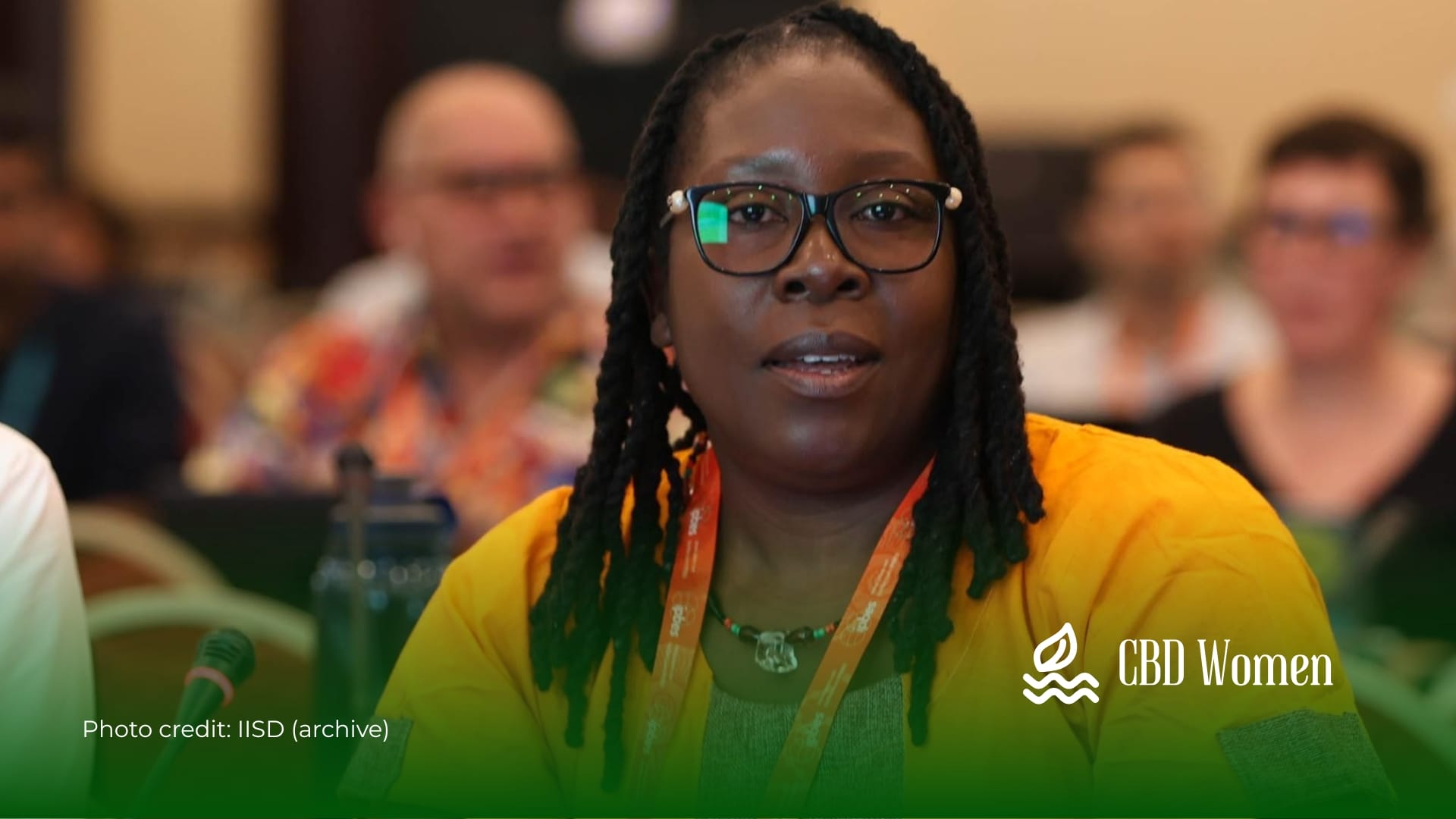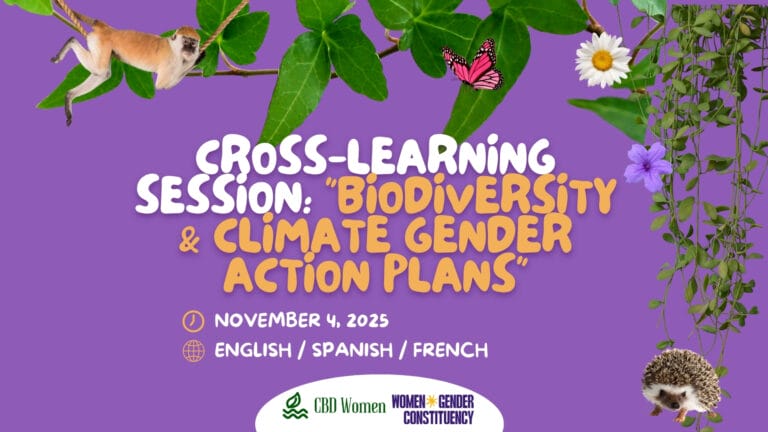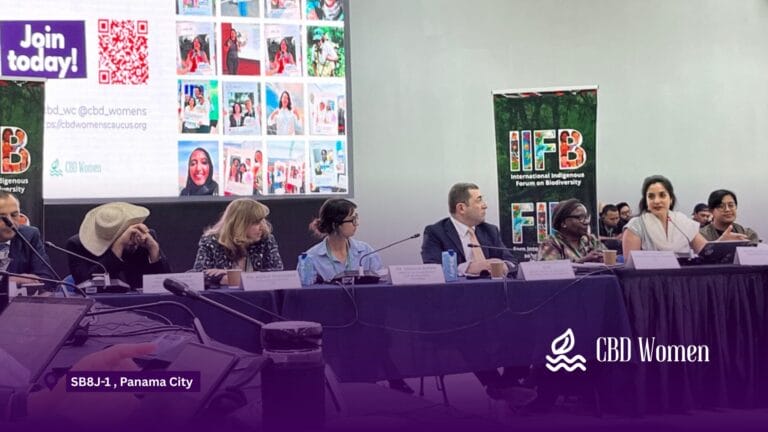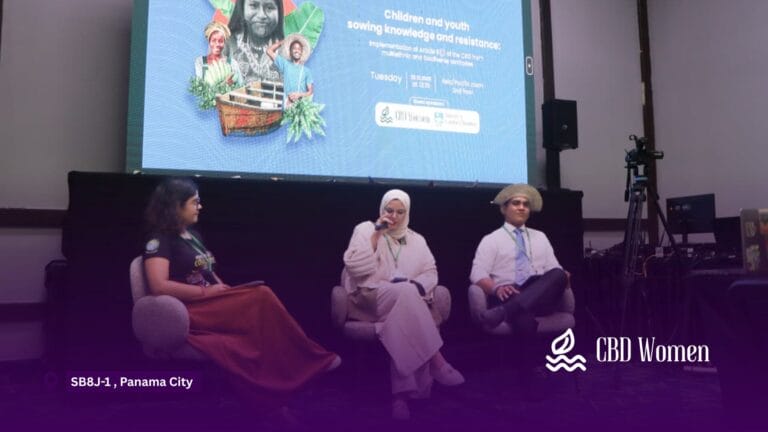By Ms. Alice Kammwamba from Malawi, Indigenous and local knowledge Coordinator and Project Manager of the Malawi National Ecosystem Assessment, and a CBD Women’s Caucus member
Disclaimer: The views expressed in this blog are those of the author and do not necessarily reflect the official position or opinions of the CBD Women’s Caucus.
As the global biodiversity community undertakes the critical task of reviewing progress under the Kunming-Montreal Framework, how do we make sure gender justice is front and center, not left behind in the technical discussions?
But wait, what’s the Ad Hoc Scientific and Technical Advisory Group (AHSTAG)?
The Ad Hoc Scientific and Technical Advisory Group (AHSTAG) is a technical body tasked with shaping the Global Report on Collective Progress in implementing the Kunming-Montreal Global Biodiversity Framework (KMGBF). Established under CBD Decision 16/32, AHSTAG provides scientific and technical guidance to support this global assessment, with a mandate running through COP17.
This journey presents a vital opportunity to embed gender-responsive approaches at the heart of biodiversity policy and action. Since its creation, AHSTAG has convened three virtual meetings on 30 April, 15 May, and 17 June 2025 to develop and refine a draft annotated outline of the report. These sessions have focused on the report’s structure, timeline, and data collection methodology, particularly in relation to subparagraphs 18(k) and 18(l) of Decision 16/32. A fourth meeting is scheduled for 9 September 2025, following the peer review phase.
The CBD Women’s Caucus has been actively engaged in this technical process. Representing the CBD WC, Ms. Alice Kammwamba from Malawi, Indigenous and local knowledge Coordinator and Project Manager of the Malawi National Ecosystem Assessment, and a CBD Women’s Caucus member, has played a leading role in ensuring that gender responsiveness is meaningfully integrated into the group’s work. Her contributions help ensure that gender is not only included in the global report but also reflected in the scientific and policy foundations that will shape future biodiversity action.
Key Contributions from the CBD Women’s Caucus
During three virtual AHSTAG meetings focused on the annotated outline of the global report, the CBD Women’s Caucus made a significant contribution:
- Advocating for gender-responsive indicators in biodiversity monitoring and review:
The CBD WC stressed the need to include specific indicators that capture gender dimensions within biodiversity data collection and reporting frameworks. This ensures that monitoring mechanisms reflect the unique experiences and contributions of women and girls in biodiversity conservation. - Emphasizing the importance of traditional knowledge and its intersection with women’s community-level roles:
The CBD WC highlighted that traditional knowledge systems are vital to biodiversity management. Particularly emphasized how women’s roles at the community level are deeply connected to this knowledge, making their inclusion essential for effective biodiversity strategies. - Pushing for human rights-based approaches and gender-disaggregated data within monitoring frameworks:
The CBD WC reiterates on frameworks that uphold human rights principles and explicitly integrate gender-disaggregated data. This allows for a more nuanced understanding of how biodiversity impacts different genders and helps tailor more equitable policy responses. - Ensure meaningful participation of women, girls, and gender experts in national biodiversity review processes:
The CBD WC called for inclusive processes that actively engage women, girls, and gender experts at all levels of biodiversity stocktaking and decision-making. Meaningful participation ensures that diverse perspectives inform policies, leading to more just and effective outcomes.
Outcomes & Next Steps
While AHSTAG created space for technical and scientific inputs, it also revealed critical gender gaps in the Global Review process.The CBD Women’s Caucus is now focused on:
- Strengthening gender responsiveness in SBSTTA-27 outcomes.
- Advocating for gender-specific indicators and data in the global report.
- Promoting greater participation of women in national biodiversity stocktakes.
- Following up with the CBD Secretariat and Parties to align the Global Review with the Gender Plan of Action (GPA) and target 23 of the KMGBF
- Strengthening gender responsiveness in SBSTTA-27 outcomes.




